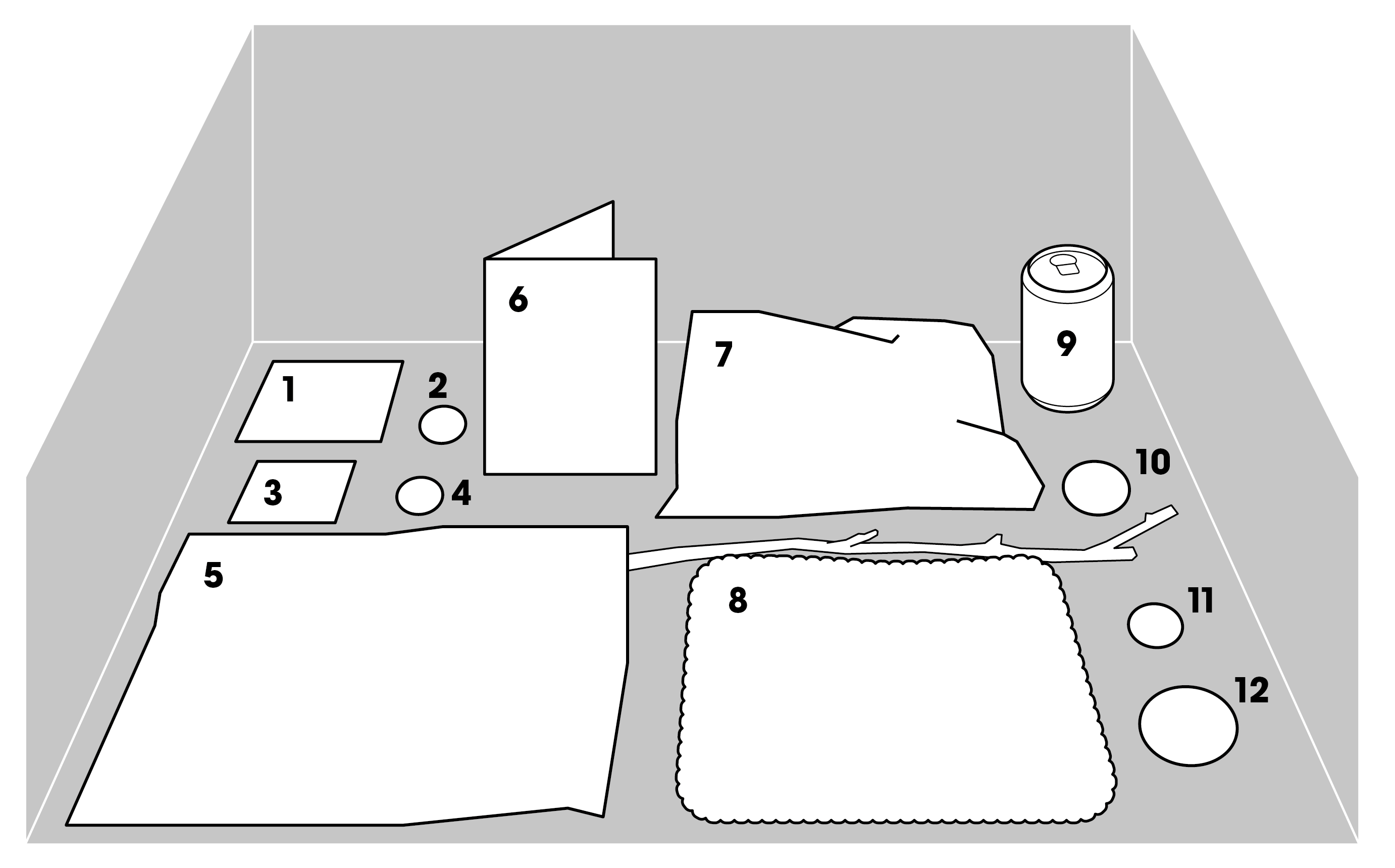PHM’s collection is continually growing; discover new acquisitions playing an important part in our work to amplify the story of democracy in Britain.
Find out more about some of the most recent additions to the collection below, which can been seen on display in Main Gallery One.

Jewish people have a long history of anti-fascism, which continues today. In 1936 they were the largest group to organise against the British Union of Fascists’ march through Tower Hamlets in London, resulting in the Battle of Cable Street. This sticker is produced by Jewdas, a group of Jewish radical leftists.
The Tax the Rich movement is trying to get higher taxes to be levied against the super wealthy, to stop cuts that have been occurring since the start of the Tories austerity policy in 2010.
Trans Pride Brighton is a transgender specific pride march, which has been running since 2013. It was the first, and is the largest, transgender pride event outside of the USA, and people attend from across Europe. The aim is to reduce discrimination through visibility and celebration.
This badge highlights the growing move against fast fashion, which relies on sweatshop labour to keep costs low by forcing workers to suffer low pay and terrible working conditions. This badge was created by anti-poverty charity War on Want to call the government to regulate fashion companies and guarantee decent working conditions. During the covid-19 pandemic, many UK sweatshops continued to run illegally with no safety controls, fuelling case rates – especially among the working class and migrants who are often working for wages below minimum wage.
This t-shirt was created by the African National Congress (ANC) – a social-democratic political party in South Africa that Nelson Mandela belonged to.
The t-shirt has different translations of the phrase ‘power to the people’ or similar sentiments, including Xhosa and South Sotho, which are native languages in South Africa, as well as English, Afrikaans, Norwegian, Portuguese, Hindi, and Arabic. At the time of creation of this t-shirt, the ANC was outlawed in South Africa, and black South Africans did not have the right to vote under Apartheid laws.
This leaflet was created by the Kill the Bill movement in protest to the Police, Crime, Sentencing and Courts Bill. This bill would criminalise noisy protests and change trespassing into a criminal matter, rather than a civil dispute. Protests across the country have taken place at each stage of the bill’s journey through parliament. These are known as Kill the Bill protests.
The ‘Tottenham Three’ were three Black men arrested, tried and imprisoned for the murder of PC Blakelock during the Broadwater Farm riot in Tottenham, London in 1985.
The riot occurred after the death of Cynthia Jarrett, a black woman, by heart attack during a police search of her house following the false arrest of her son. This, along with the backdrop of the 1985 Brixton Riot which had occurred the previous week (caused by the police shooting of another Black woman, Dorothy Groce), caused widespread anger that developed into a riot.
In the evening, a group of Police Officers were overcome some way from the centre of the uprising. One of these officers, PC Blakelock, was violently killed.
The police arrested three men and three youths on account of Blakelock’s murder; the youths’ cases were dismissed as their interrogations were considered inadmissible due to the poor conditions in which they were kept and the lack of guardian presence during police interviews. Winston Silcott, Engin Raghip and Mark Braithwaite were arrested and convicted for PC Blakelock’s murder despite their being no physical evidence and no recorded confessions.
All three were cleared of the offence in 1991, after it became apparent that the police had tampered with the notes of their interrogations, which had been the only evidence in the trials.
This bannerette was created in response to the Black Lives Matter protests in 2020, which spread throughout the world after the murder of George Floyd. Made from a pattern created by Ola Ogunlolu, who is a Black male knitter from the US, it was displayed in the creator’s window in Sale, Manchester, during the covid-19 pandemic, showing how people adapted their protests to remain indoors at this time, and how these important moments intersected.
The Barnard Castle controversy took place at the peak of covid-19. The Prime Minister’s chief advisor, Dominic Cummings, made a journey across the country with covid-19 symptoms during the first ‘lockdown’ in March 2020, when non-essential travel was forbidden. Brewdog came up with a tongue-in-cheek response with the production of this ‘hazy’ beer.
10. Keep Your Filthy Laws Off My Body badge, date unknown
Little is known about this badge, but it almost certainly relates to abortion and a woman’s right to choose. It shows that the wearer does not want the government (usually a majority male institution) to be able to declare laws that would control their bodies, especially in relation to contraceptive and abortion rights.
Nelson Mandela was imprisoned between 1962 and 1990, during which time he became the focus for the international anti-apartheid movement. The band The Specials (then known as The Special AKA) released the song Free Nelson Mandela in 1984. Mandela was finally released in 1990 after the African National Congress (ANC) party was declared legal. In 1992 apartheid ended following a referendum of white South Africans.
Research into the story behind this badge, which is based on the Coca-Cola identity, is ongoing so please get in touch with PHM’s Collections Team if you have any information.
Suitable for all ages.